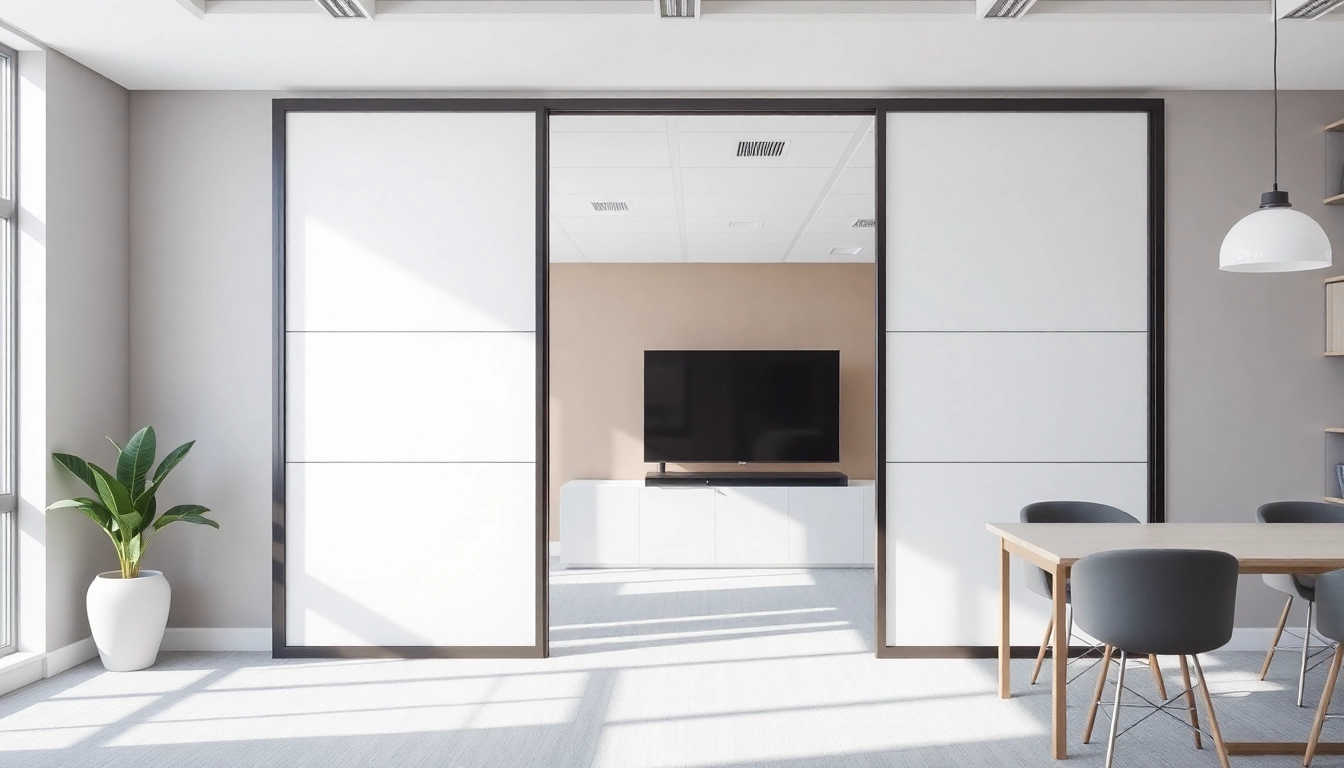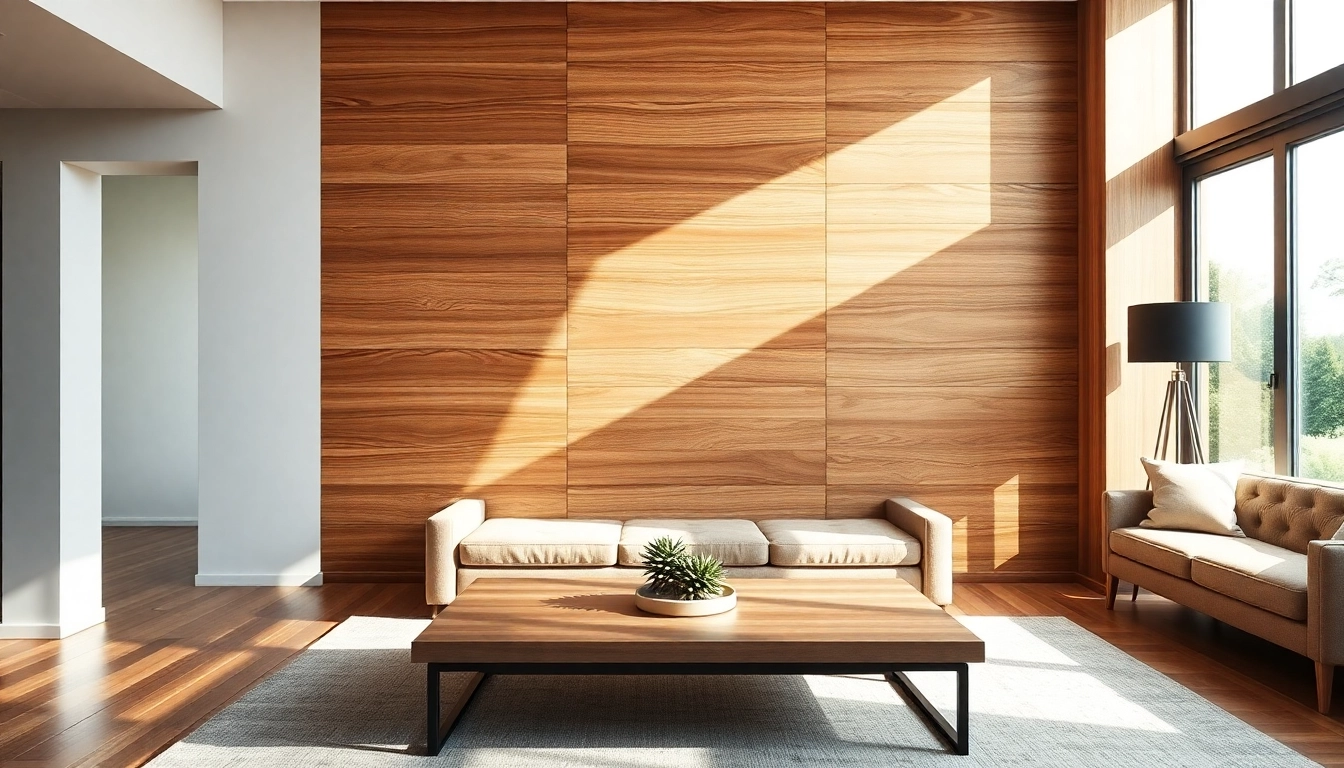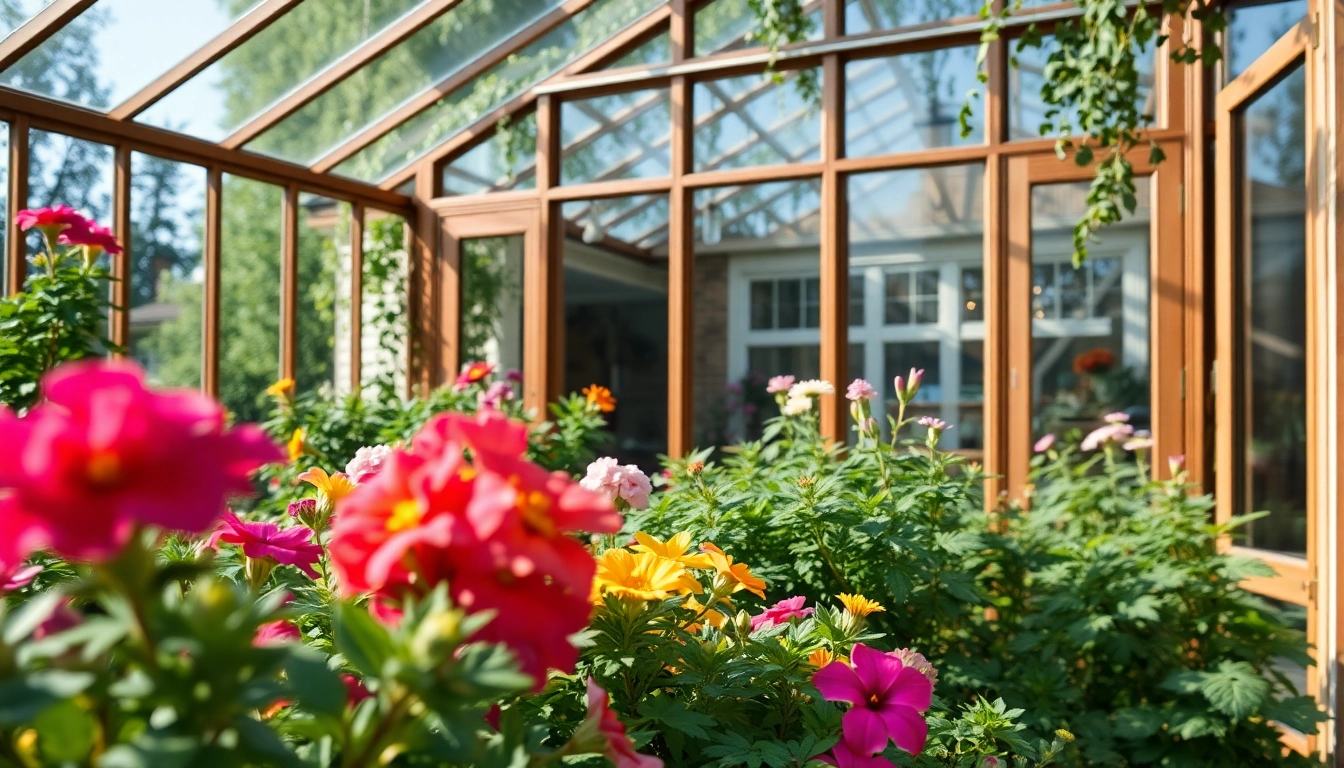
Understanding Folding Partition Walls
What is a Folding Partition Wall?
A folding partition wall is a versatile wall system designed to create flexible spaces by dividing larger areas into smaller, functional rooms. These walls can be opened and closed easily, providing the convenience of converting a large auditorium into several classrooms or a spacious hall into intimate meeting areas. Typically made from lightweight materials, folding partition walls operate on a track system and can just as easily be retracted when individuals want an open space. The adaptability of these walls makes them an ideal solution for various environments, from commercial spaces to residential homes. If you’re looking for more information about folding partition walls, you can find detailed options and products on this Folding Partition Wall resource.
Benefits of Using Folding Partition Walls
The benefits of folding partition walls are numerous and diverse. Firstly, they enable efficient use of space, transforming a single area into multifunctional spaces. This adaptability can lead to significant cost savings, as it reduces the need for additional square footage. Second, they often provide sound attenuation, allowing different rooms to operate simultaneously without disturbing each other. Moreover, many modern folding partitions can be designed with aesthetic elements, such as finished surfaces or integrated glass panels that let in natural light while maintaining privacy. This combination of functionality and style makes folding partition walls valuable assets in designs aimed at creating dynamic environments.
Applications in Various Settings
Folding partition walls have a wide range of applications across different settings:
- Commercial Spaces: In hotels, conference centers, and corporate offices, these walls allow for quick reconfiguration of spaces to accommodate meetings, events, or seminars.
- Educational Institutions: Schools and universities use folding partition walls to create classrooms, lecture halls, or study zones on demand, ensuring maximum utility of the space.
- Hospitality Industry: Restaurants and cafes utilize them to create private dining experiences or more intimate settings for special events.
- Residential Homes: Open-concept homes benefit from folding partitions by allowing families to create defined areas for various activities while keeping the overall space interconnected.
Types of Folding Partition Walls
Material Options for Folding Partition Walls
The materials of folding partition walls can vary significantly, greatly impacting their functionality and aesthetic appeal. Common materials include:
- Vinyl: Lightweight and waterproof, vinyl partitions are durable and easy to clean, making them ideal for high-traffic areas.
- Wood: Often used for aesthetic purposes, wooden panels provide a warm feel and can be customized to match the interior decor.
- Glass: Offering transparency and a modern look, glass partitions allow for light flow while defining spaces. Acoustic-rated glass options are available for enhanced sound control.
- Fabric: Often utilized in portable partitions, fabric options can be lightweight and inexpensive. They’re commonly used in event settings for temporary walls.
Acoustic Ratings and Performance
Acoustic performance is a critical consideration when selecting a folding partition wall. The rating is determined based on sound transmission class (STC) ratings that indicate how much sound can penetrate the wall. Higher STC ratings provide better sound insulation, making them suitable for environments where noise control is essential. For example, conference rooms, classrooms, and healthcare facilities require partitions with higher STC ratings to maintain privacy and concentration levels. Investing in acoustic-rated folding partitions can significantly enhance the usability and comfort of multi-purpose spaces.
Design Flexibility and Customization
Another advantage of folding partition walls is their design flexibility. Many manufacturers offer customization options, allowing clients to choose the size, color, and material of the partitions to fit their specific space requirements. Whether you are looking for partitions that blend seamlessly into your environment or those that make a bold statement, the range of customization options available today can cater to varied design preferences and practical needs. Additionally, many folding partitions can be fitted with features like graphics, whiteboards, or even writing surfaces, making them functional for both educational and corporate settings.
Choosing the Right Folding Partition Wall
Assessing Your Space and Needs
Before purchasing a folding partition wall, it’s crucial to assess your space and specific requirements. Consider the following factors:
- Size of the Space: Measure the area where the partition will be installed to ensure appropriate sizing and functionality.
- Intended Use: Identify the purpose of the partition. Will it need to offer significant sound insulation, or is it simply for visual separation?
- Frequency of Use: If the partition will be moved frequently, opt for lighter materials and simpler operation mechanisms for ease of use.
- Stylistic Preferences: Determine if you prefer a modern or traditional look and how the partition will fit into the existing interiors.
Budgeting for Installation and Maintenance
When budgeting for a folding partition wall installation, consider both the initial costs and ongoing maintenance. Initial investments can vary based on materials, design features, and installation complexity. It’s advisable to obtain multiple quotes from manufacturers and contractors to ensure competitiveness. Additionally, consider the maintenance needs; for instance, some materials may require specific cleaning approaches or treatments after installation. By planning a budget that encompasses these aspects, you can avoid unexpected expenses down the line.
Comparison with Other Partition Solutions
While folding partition walls are versatile, it’s essential to compare them with other partition solutions to select the right fit. Here are some common alternatives:
- Sliding Doors: Similar capabilities to folding walls but typically offer less flexibility in space configuration.
- Fixed Walls: Provide greater durability and structure but lack the flexibility of folding partitions.
- Accordion Doors: A similar concept, these doors can fold up but may not provide the same level of sound insulation or aesthetic options as dedicated folding partitions.
Each solution has its advantages and best use cases. Analyzing your space’s unique needs and constraints can help in making the best selection.
Installation Process and Best Practices
DIY vs. Professional Installation
While some individuals may consider installing folding partition walls themselves, it is often advisable to hire a professional. Professional installation ensures precision, particularly for complex systems requiring track alignments or heavy sound-proofing measures. An expert installer will understand the installation requirements specific to different types of partitions and can help prevent common pitfalls that could lead to improper functioning over time. However, for simple partitions and customizable products that are designed for easy assembly, DIY installation may be feasible with careful attention to the manufacturer’s guidance.
Steps to Ensure Proper Installation
If you decide to proceed with installation—whether DIY or professional—here are crucial steps to follow for ensuring proper installation:
- Preparation: Prepare the installation area by clearing furnishings and marking where the partition will be installed.
- Measure Carefully: Verify all measurements, ensuring the partition fits within the designated area.
- Install Tracks: Securely install the upper and lower tracks according to the manufacturer’s specifications, ensuring they are level.
- Hang Panels: Following the installation guide, carefully hang or place panels on the track, ensuring they operate smoothly.
- Final Adjustments: Test the operation of the partition, making necessary adjustments to ensure optimal function.
Maintenance Tips for Longevity
Proper maintenance of folding partition walls can greatly enhance their lifespan. Here are some practical maintenance tips:
- Regular Cleaning: Depending on the material, use appropriate cleaners. For instance, glass partitions may require glass cleaner, while vinyl can usually be wiped down with a damp cloth.
- Check Mechanisms: Periodically check that operational mechanisms are functioning well and lubricate as needed to avoid jamming.
- Inspect for Damage: Regularly inspect the walls for any signs of wear, such as scratches, dents, or damaged panels, and address repairs promptly.
Case Studies: Successful Implementations
Commercial Use Cases of Folding Partition Walls
Folding partitions have transformed numerous commercial spaces into multifunctional environments. For example, a top-tier hotel in New York implemented folding partitions to create adaptable conference spaces that could morph from a large 500-seat ballroom to smaller meeting rooms, boosting their event capabilities. By utilizing insulated walls, they optimized sound control, allowing events to occur simultaneously without disruption.
Residential Innovations with Folding Partition Walls
In residential applications, many homeowners have embraced folding partitions to redefine space within their homes. One particularly innovative case involved a family with an open concept living area. By installing a folding partition, they transformed part of their space into a home office when needed, while still allowing light and sightlines into the main living area. This innovative approach managed to satisfy both their aesthetic and functional needs.
Lessons Learned from Real-World Applications
From these case studies, key lessons have emerged about integrating folding partition walls effectively:
- Flexibility is Key: Spaces that can adapt to different uses over time are more valuable, especially in commercial settings.
- Quality Matters: Investing in high-quality materials pays off in durability and performance, maintaining functionality and aesthetics.
- Planning is Essential: Successful implementations often stem from thorough planning at the design phase, considering both current and future needs.







